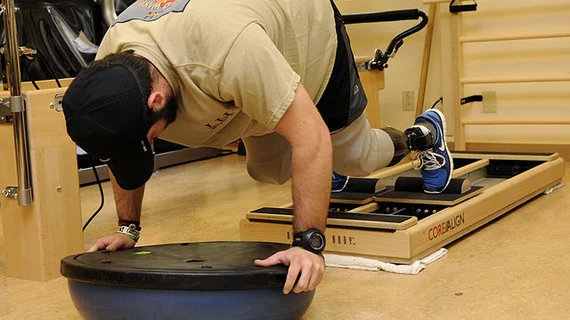Virtual physical therapy platform reduced costs for patients, as effective as traditional care
An FDA-cleared virtual physical therapy platform is cheaper and just as effective as traditional therapy treatment, according to a recent study.
Patients that underwent total knee replacement (TKR) were evaluated following surgery, with about half receiving traditional in-home or clinic-based physical therapy and half using a virtual physical therapy treatment called Virtual Exercise Rehabilitation Assistant (VERA), developed by digital health company Reflexion Health.
Three months after TKR surgery, virtual physical therapy was more cost-effective and just as effective as traditional therapy treatments, according to researchers with the Duke Clinical Research Institute in Durham, North Carolina. The average cost savings for a patient who used VERA, with clinical oversight, was $2,745 when compared to traditional physical therapy.
“We are pleased with the results of the study which show that Reflexion Health’s VERA coupled with remote clinician oversight, is a cost-effective paradigm for physical therapy—one that is more convenient for patients while providing clinicians greater insight into the recovery process,” Janet Prvu Bettger, ScD, Duke associate professor and principal investigator of the study, said in a statement.
Physical therapy is a critical part of a patient’s recovery following a knee replacement surgery, and finding new solutions that result in better outcomes is important, researchers stressed.
"As people live longer and these surgeries become more common, it is important to identify solutions that maintain or improve outcomes while decreasing the burden on patients and providers,” Bettger said.
For the study, 143 adults received the VERA therapy before and after surgery, while 144 adults received traditional in-home or clinic-based physical therapy. Overall, 287 participants completed the trial.
Beyond the savings, virtual therapy met secondary effectiveness endpoints of non-inferiority for reducing disability and improving knee function. Safety endpoints for patients using virtual physical therapy was also similar to traditional care, researchers said.
“The strength of these results should give providers and payers the proof they need to adopt VERA. Engaging and delighting patients with a convenient and connected solution in the comfort of their own home, while providing similar or better clinical outcomes and dramatically reducing overall healthcare costs is a win for everyone,” Reflexion Health CEO Joseph Smith, MD, PhD, said in a statement.

